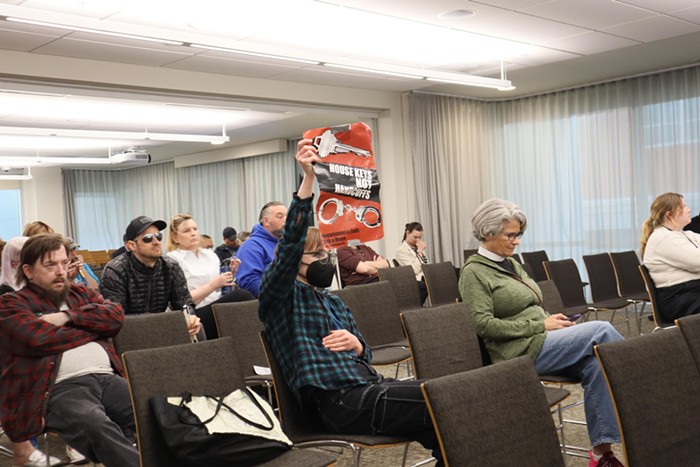Between June 2 and July 17, North and Northeast Portland streets were pelted with bullets, with 40 shootings resulting in 12 injuries. It is a grim list of statistics that sounds more like the crime-pocked '90s in NE Portland than the recent era of commercial blossoming and relative calm along Alberta Street--one of the main arteries of inner NE Portland.
Portland gang activity peaked in 1995, resulting in drive-by shootings, massive arrests, and a brutal reputation for the neighborhood. But since then, local entrepreneurs and the Portland Development Commission (PDC) have aimed to turn the Northeast streets around. Part of that evolution, it has always been assumed, would be a movement away from the gang-activity that had characterized the neighborhood.
Alberta Street, once lined with bars and boarded-up storefronts, has been the focus of a five-year-long beautification project. The renovation includes tree-planting, sidewalk-widening, and installation of new signs and street lamps. It spans from Martin Luther King Boulevard to NE 33rd Avenue, and is scheduled for completion in June 2003.
Over the past three years, boutiques, wine bars, and even a dog day-care center have sprung up along Alberta Street. The commercial development has been capped with the opening of the well-lit and high-end grocery store, New Seasons.
Until this summer, it appeared as if gang activity and violent crimes were waning in the neighborhood, and making way for a prosperous future. It is too early to determine whether the recent gang activity is an aberration or a regression to the past. Moreover, it is too early to determine what impact--if any--a resurgence in crime could have on future development in NE Portland.
Former Northeast resident David Cowing recently returned to open a business on Alberta Street. He said the neighborhood has since turned around, and headlines about gang violence aren't deterring shoppers from checking out his new shop, Everyday Wine. Cowing described the Northeast of three years ago as a "rough neighborhood," and said violence in those days was impossible to avoid. He remembers the nightly sounds of gunshots and police helicopters circling overhead.
Reggie Petry, director of the Alberta Arts Pavilion and Our Dream Gallery, featuring contemporary and African American fine art, has lived in Northeast Portland for 14 years. He believes that no community is immune to violence and, more precisely, that people are prejudiced by the Northeast's history. "People hear of Northeast Portland having a shooting, and it brings up those memories. But some of the better parts of Portland have been hit with gang activity," he said, referencing Beaverton and Southeast Portland.
Some experts believe the "Northeast renaissance" is unshakable, regardless of reports of gang violence, simply because of the crowd Alberta Street attracts.
Dr. Carl Abbott specializes in Portland planning and neighborhoods as an urban studies professor at Portland State University. He says those strutting down Alberta Street are generally not the same folks window-shopping on Northwest 23rd.
"I doubt gang activity will deter people from using that part of the city," he said. "Alberta Street is relatively an edgy part of Portland, so people who are attracted there are people who are comfortable with the gritty feel."
Sgt. Neil Crannell, supervisor of the police Gang Enforcement Team, attributes the upswing in gang violence to recidivism, a relapse into crime after time away from the streets, perhaps in prison. Crannell points out that the gang bangers that earned the Northeast its reputation--many sentenced to Measure 11's mandatory seven years--are now getting out of prison. He continues to explain that these men may be returning to a neighborhood that has changed and forgotten them.
"They don't have a history and they don't have the respect," he says. "They try to gain a name for themselves by doing shootings."


















